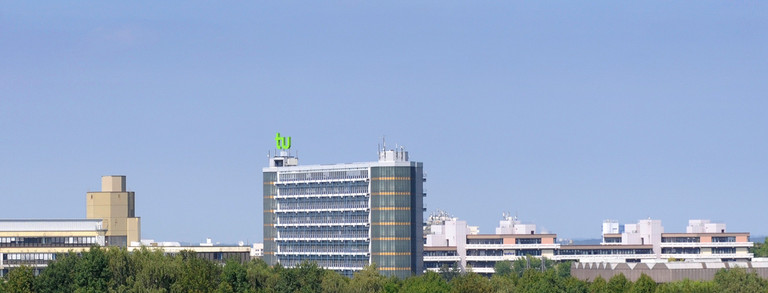Association of Friends Supports Over 20 TU Projects a Year
- Top News
- Campus & Culture

As a non-profit association, the GdF was able to provide a total of 80,000 euros in support to a wide range of activities at TU Dortmund University in 2023. This support covered a broad spectrum, including the Helmut-Keunecke-Haus as accommodation for international guests, Deutschlandstipendium scholarships and prizes for students, and events such as the Summer Festival and the Academic Anniversary Celebration. Initiatives promoting internationalization are also supported by the association. “We want international students to stay here even after they graduate. That’s why we support the International Career Fair, for example, which also allows us to help strengthen Dortmund as a business location,” said GdF Chairperson Guido Baranowski at the International Meeting Center. For the future, he held out the prospect that the GdF would be able to continue supporting the diverse activities thanks to a bequest left by an entrepreneur and long-time supporter of the association. He went on to state that the construction of a new guesthouse to replace the Helmut-Keunecke-Haus will also be expedited in the coming years.
The diverse support the GdF offers is made possible by the annual 40-euro membership fee paid by almost 500 members as well as through generous individual donations. Guido Baranowski encouraged all members to recruit new supporters for the GdF. TU President Prof. Manfred Bayer thanked the GdF members for their commitment. Members of the student racing team “GET racing”, which the association also supports, also attended the annual general meeting. They announced that the team will be taking its latest race car to Hungary to compete in an international competition from 28 July to 2 August.
AI in Journalism – a Critical and Competent Approach
Prof. Christina Elmer gave the GdF members valuable insights into teaching and research. The professor from the Institute of Journalism (IJ) spoke about the ways in which artificial intelligence enhances and challenges journalism. In her words, journalism is undergoing a transformation. On the one hand, it is important to be willing to experiment and to reasonably integrate various AI systems into the work. In fact, various AI applications are already being used in the knowledge management of archives, in research, in the production of various formats and content distribution. On the other hand, it is equally important to monitor the transformation with a critical and competent eye, and train the students at the IJ to do so. For example, in a time where information sources are becoming increasingly difficult for users to identify, journalism has a duty to make its own processes transparent. With regard to deep fakes, both journalists and the public will need to adopt a “two-factor authentication” attitude in the future, said Elmer. In other words, all content will have to be verified by a second source. In the professor’s eyes, the main potential of journalism now lies even more in establishing itself as a haven of quality and credibility in this time of transformation.





![[Translate to English:] Partner Four hands are holding the green logo of TU Dortmund University](/storages/tu_website/_processed_/1/d/csm_Partner_Nicole_Rechmann_KW_670eba0154.jpg)




![[Translate to English:] Forschung An apparatus with tubes in a laboratory](/storages/tu_website/_processed_/0/c/csm_Forschung_Juergen_Huhn_4fa3153b51.jpg)
![[Translate to English:] Studium Five students are sitting in a lecture hall. They are talking to each other.](/storages/tu_website/_processed_/c/9/csm_Studium_FelixSchmale_dbdbfb0dd7.jpg)





